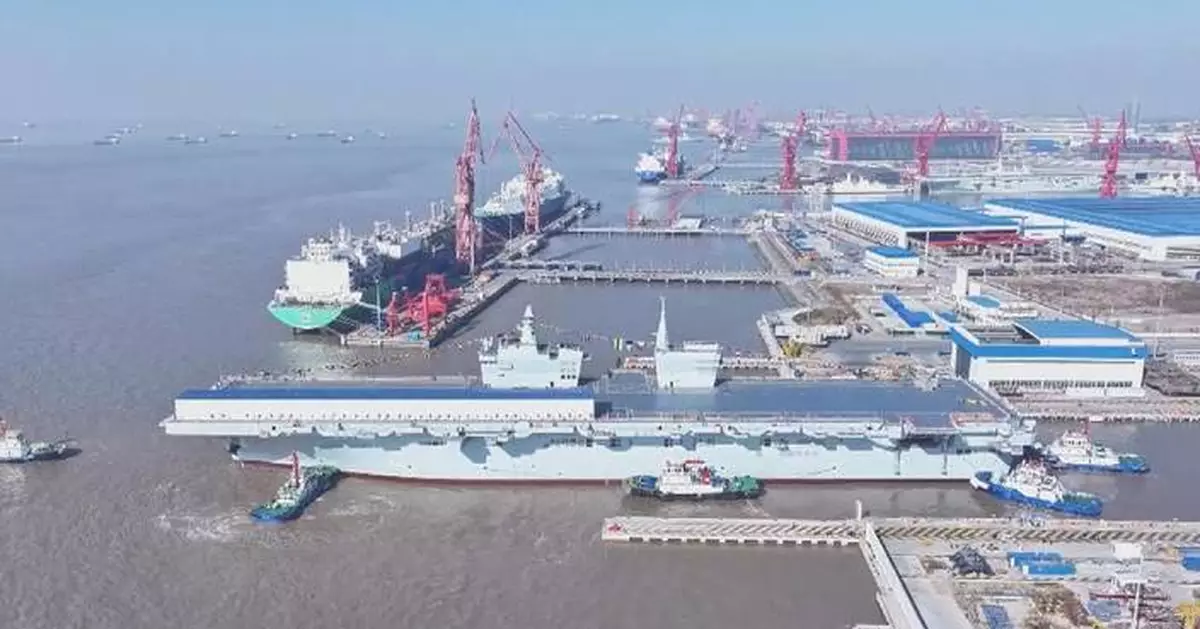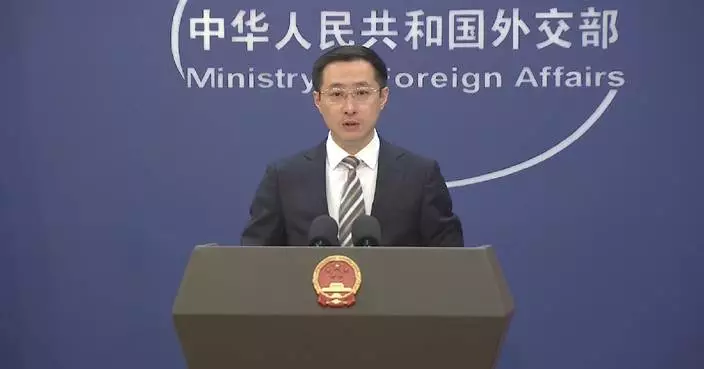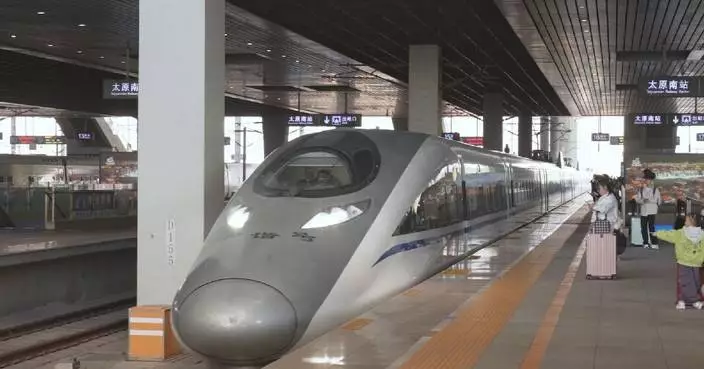China's first domestically developed and built Type 076 amphibious assault ship, the Sichuan, left the dockyard in Shanghai on Sunday morning.
Named after southwest China's Sichuan Province, the new vessel was put into the water at a launch and naming ceremony on Friday. It was given the hull number 51.
The ship has a full-load displacement of over 40,000 tonnes and features a dual-island superstructure along with a full-length flight deck.
It incorporates innovative electromagnetic catapult and arrestor technologies, enabling it to carry fixed-wing aircraft, helicopters, and amphibious equipment.
As the new-generation amphibious assault ship of the Chinese People's Liberation Army Navy, it plays a key role in advancing the Navy's transformation and enhancing its combat capabilities in the far seas, according to Navy officers.
Leaving the dockyard also means that the main construction of the ship has been completed, and it will now enter the next phase of outfitting and equipment commissioning.
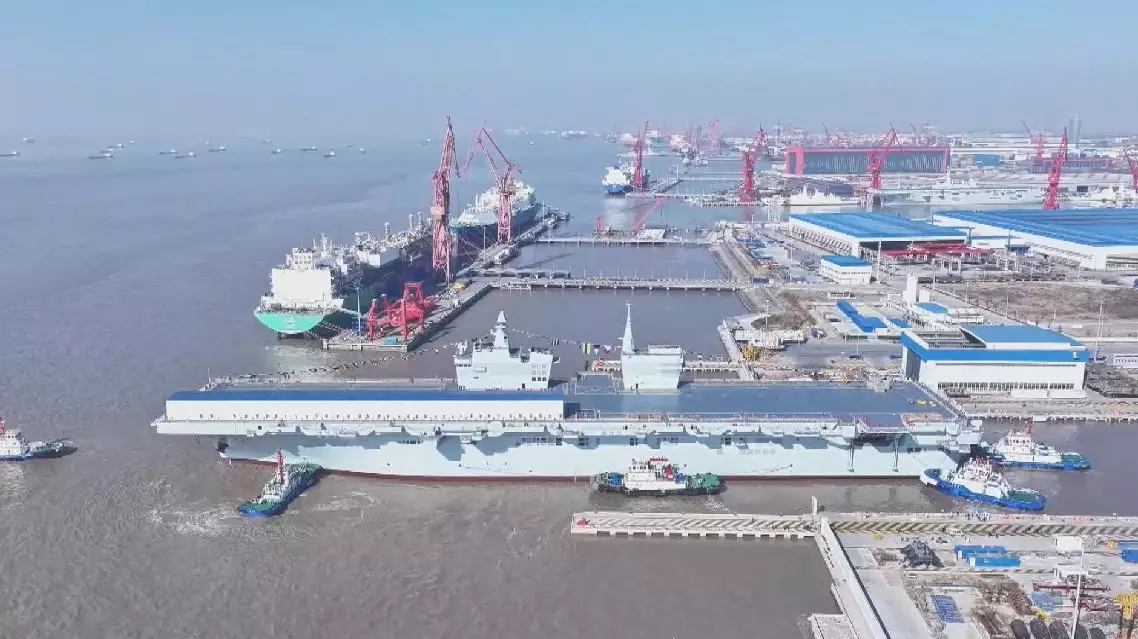
China's newly launched amphibious assault ship leaves dockyard
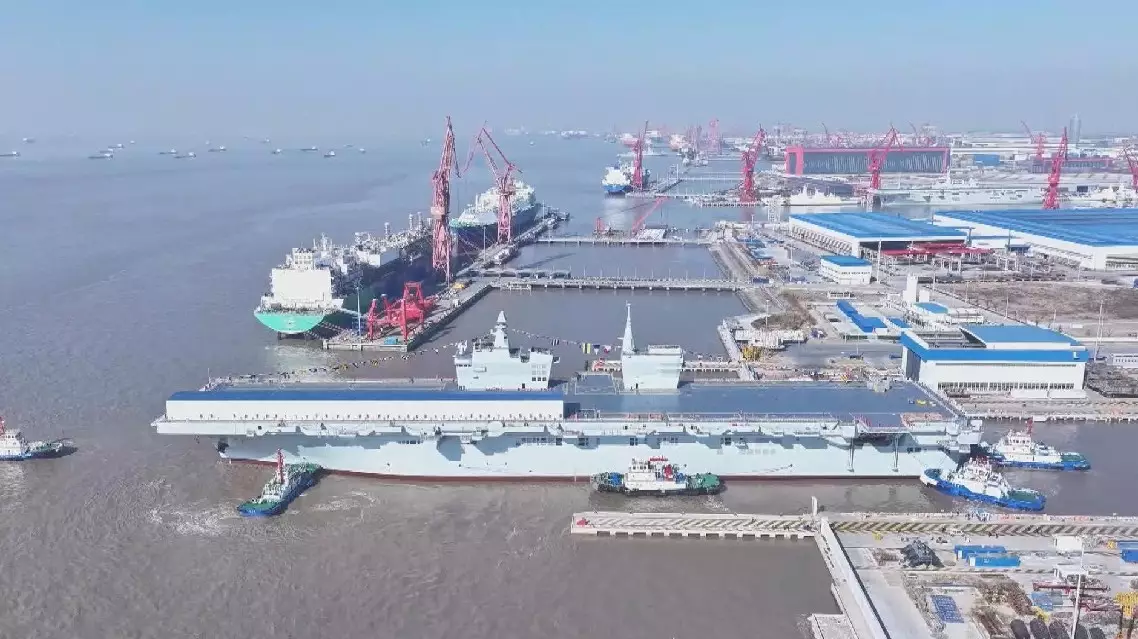
China's newly launched amphibious assault ship leaves dockyard
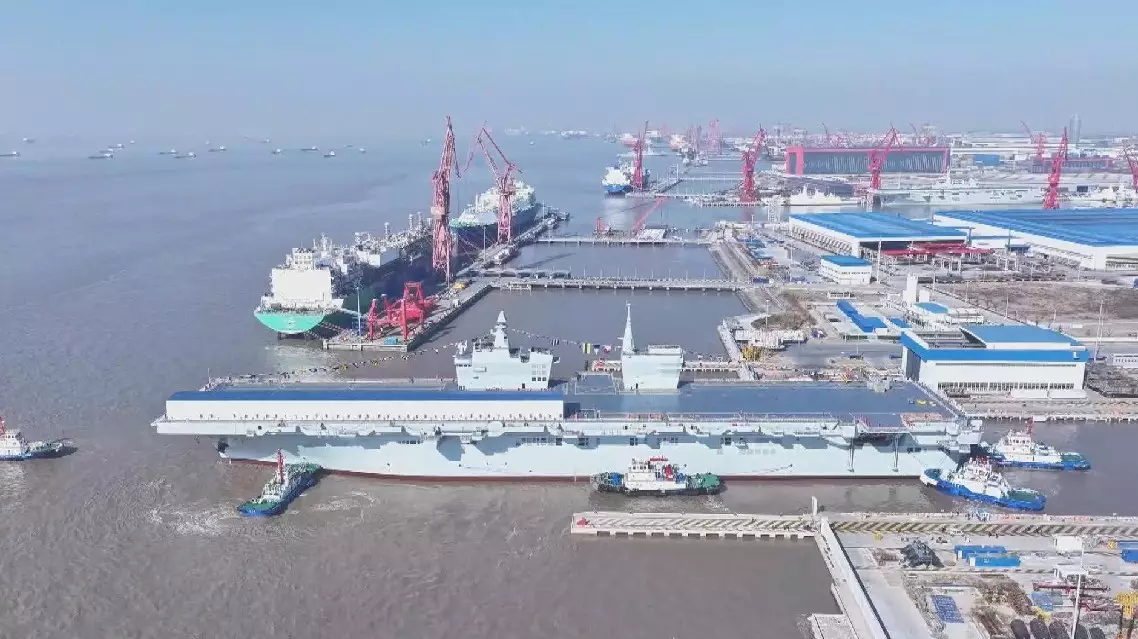
China's newly launched amphibious assault ship leaves dockyard
China's Central Military Commission had recently decided to reorganize its current military academies and establish three new ones in order to adapt to the adjustment of the military branch structure and meet the needs for military talent cultivation, said Jiang Bin, spokesman of the Ministry of National Defense, on Thursday.
"We will reorganize and establish Chinese People's Liberation Army (PLA) University of Army Branches, PLA Information Support Force Engineering University, and PLA Joint Logistics Support Force Engineering University. The three are all higher education institutions that recruit ordinary high school graduates from society," said Jiang.
"Among them, the PLA University of Army Branches is formed from the PLA Army Academy of Armored Forces and the Army Academy of Artillery and Air Defense, with its main campus located in Hefei City of Anhui Province. The PLA Information Support Force Engineering University is formed from the Information and Communication College of the National University of Defense Technology, and the Communications NCO (non-commissioned officers) School of the Army Engineering University, with its main campus located in Wuhan City of Hubei Province. The PLA Joint Logistics Support Force Engineering University is formed from the Army Logistics Academy, the Army Military Transportation University and its affiliated Automobile NCO Academy, with its main campus located in Chongqing Municipality. Information about the majors and enrollment numbers for these newly established universities will be released in due course in conjunction with the annual enrollment plan," said Jiang.
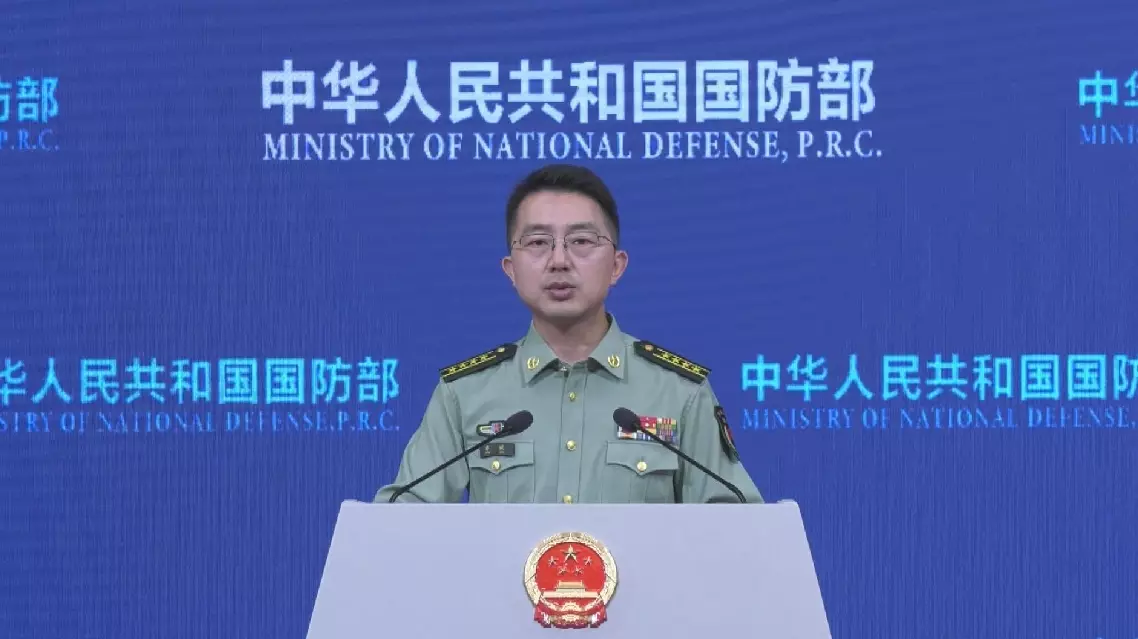
China to restructure, establish three new military academies





